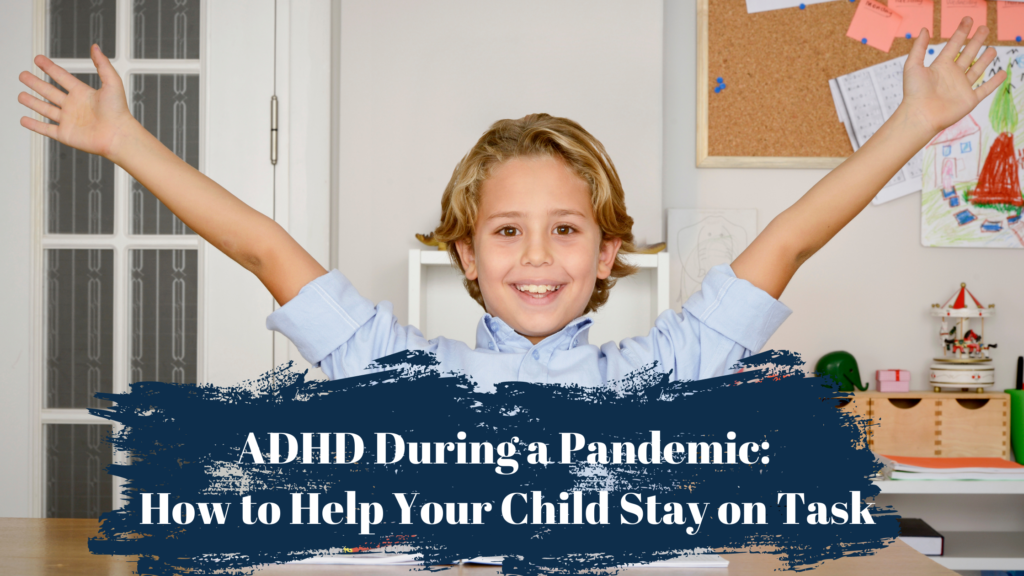
ADHD, or attention deficit hyperactivity disorder, is more common than ever among schoolchildren. Children with ADHD are easily distracted, impulsive, often fidget, and struggle to pay attention or focus on the task at hand, such as listening to a class lesson or completing an assignment. Over the last few decades, great strides have been taken to help children with ADHD improve their symptoms and perform better in the classroom. However, the recent pandemic has seen an upswing in children who are again struggling to keep up with school work.
What causes ADHD?
ADHD is a result of less activity in the part of the brain that controls attention or imbalances in brain chemicals known as neurotransmitters. Children with ADHD are either predominantly hyperactive/impulsive or predominantly inattentive. Predominantly hyperactive/impulsive children display more fidgety or disruptive behaviors while predominantly inattentive children simply struggle to focus attention.
ADHD Treatments
Providers treat ADHD by two different methods–medication and therapy. The most successful treatment of ADHD combines both medicine and therapy. Stimulant medications are the most commonly prescribed and best medicinal treatment for ADHD. Certain non-stimulant medicines are also sometimes used but are believed to carry a higher risk for the patient. Talk therapy and support therapies such as social skills therapy can help children with ADHD learn how to cope with struggles. It may also boost their self-esteem, as well as teach them how to get along well socially.
The role of the parent or guardian is as crucial in the treatment of ADHD as therapy and medication. Parents or guardians can help their ADHD child stay on task with the implementation of a daily written schedule or routine. This schedule should include all tasks to be completed from the time they wake up to bedtime. Tasks include basic daily activities such as eating breakfast, brushing teeth and hair, and getting dressed, as well as any home tasks such as chores or homework.
Parents are also their children’s biggest advocate at school. They should ensure the school treats their child’s ADHD virtually through special education and modifications to help the child stay on task. IEPs and 504s should be in place for any student with ADHD.
ADHD and Coronavirus Pandemic
ADHD doesn’t place your child at a greater risk for contracting coronavirus. However, the pandemic could still affect their condition. Behavioral health experts have seen a rise in ADHD children who are struggling to keep up with schoolwork due to distance learning and other hurdles caused by the pandemic. Luckily, parents and children can implement a number of measures to help ease ADHD struggles.
- Create a new daily schedule/clear routine for distance learning. Work with your child’s teacher or teachers to create the best schedule to manage their ADHD during the pandemic. Ensure the schedule includes breaks that detail activities for the child to do to unwind.
- Make sure teachers continue to implement learning modifications and adjusted them to fit distance learning.
- Create one space for everything. Students are using a plethora of learning and streaming programs for distance learning. A child with ADHD may become overwhelmed by the various links and programs they must access each day. They may benefit from consolidating links and schedules all in one place. Consider using a Google Document since Google Classroom is a commonly used program among schools. Parents should work with the child’s teacher to create this designated starting place.
- Develop daily/weekly checklists and scheduled check-ins. Again, parents and teachers should work together to create daily and weekly checklists to help children with ADHD stay on top of school tasks and assignments. Ask to schedule regular check-ins between the child and their teachers to give them opportunities to address problems or questions.
- Ask for non-screen work. It’s no secret that too much screen time is detrimental especially to children who are already struggling with attention or learning disabilities. Parents should talk with their child’s school or teachers to find out if paper assignments are available to complete and return to the school to help reduce screen time.
- Use tools like text-to-speech to help children stay on task. ADDitude Magazine offers a great list of assistive technology apps and extensions to help students struggling with schoolwork.
Has your child been struggling with ADHD-like behaviors for longer than six months? It could be more than just struggles of learning during a pandemic that are causing your child to have problems. At Mantachie Rural Healthcare, we diagnose and treat ADHD with combined work between your child’s healthcare provider and our behavioral health specialists. Don’t let your child struggle through another semester when help is just a call away. Request an evaluation appointment today at 662-282-4226 or through our website.



Speak Your Mind